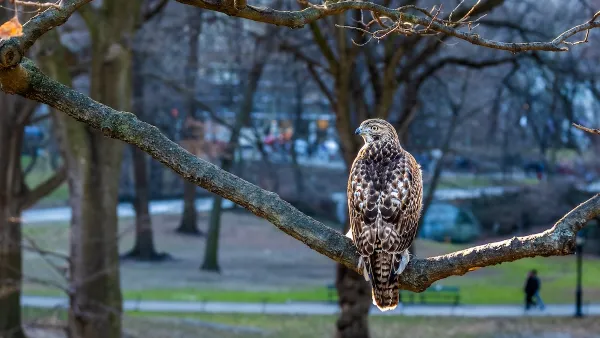The decade that began with the first Earth Day became a pivotal moment in U.S. environmental awareness and action. The core principles of the environmental decade are now questioned in the highest offices of our land.

On April 22, 1970, I stepped to the podium of the auditorium in Far Rockaway High School in New York City to introduce Herbert Johnson, the long-time park ranger of the Jamaica Bay Wildlife Refuge, a man who had labored most of his adult life to build a haven for birds and crustaceans in the shadow of Kennedy airport. Moved by the teaching of our science faculty, and drawn into a national conversation stimulated by Rachel Carson and Marjory Stoneman Douglass, I was one of a small group in my school who campaigned that the school should mark the first Earth Day in a significant way.
The decade that began with the first Earth Day became a pivotal moment in US environmental awareness and action, seeing passage of the Clean Air Act, the Federal Pollution Control Act amendments of 1972, the Coastal Zone Management Act and a host of other key environmental protection laws, many of which were echoed in our states and in other countries. It was also a time when school children became leaders in their families, promoting sustainable practices that often seemed at odds with the greatest growth spurt in consumerism that the world had known.
Earth Day became a regular part of our annual cycle and even faded into the background as we began to take for granted the cleaner water and air and resource management protections that resulted from the environmental decade. As a nation, we largely moved on to other concerns.
Our city planning profession, of course, did not. Environmental sustainability remained central to our cause as the issues were reframed and refocused around carbon footprint, biodiversity, genetic modification in the food supply, and other increasingly global concerns. Still, there was a complacency that here in the US that we had a consensus around the fundamentals of pollution control and sustainable yield from publicly managed natural resources.
Suddenly, that complacency no longer seems justified. The core principles of the environmental decade are now questioned in the highest offices of our land, and civil servants who dedicated their lives to protecting our planet for our children find themselves unwelcome in their workplaces. Again, an Earth Day that calls attention to the irreplaceable role of natural resources in sustaining life is essential to our future. Thank you for your commitment to a profession that works at the forefront of the battle for sustainability. May this Earth Day be a moment to reassure you that progress is possible and to contemplate the most effective path forward to living equitably within our means.

National Parks Layoffs Will Cause Communities to Lose Billions
Thousands of essential park workers were laid off this week, just before the busy spring break season.

Retro-silient?: America’s First “Eco-burb,” The Woodlands Turns 50
A master-planned community north of Houston offers lessons on green infrastructure and resilient design, but falls short of its founder’s lofty affordability and walkability goals.

Delivering for America Plan Will Downgrade Mail Service in at Least 49.5 Percent of Zip Codes
Republican and Democrat lawmakers criticize the plan for its disproportionate negative impact on rural communities.

Test News Post 1
This is a summary

Test News Headline 46
Test for the image on the front page.

Balancing Bombs and Butterflies: How the National Guard Protects a Rare Species
The National Guard at Fort Indiantown Gap uses GIS technology and land management strategies to balance military training with conservation efforts, ensuring the survival of the rare eastern regal fritillary butterfly.
Urban Design for Planners 1: Software Tools
This six-course series explores essential urban design concepts using open source software and equips planners with the tools they need to participate fully in the urban design process.
Planning for Universal Design
Learn the tools for implementing Universal Design in planning regulations.
EMC Planning Group, Inc.
Planetizen
Planetizen
Mpact (formerly Rail~Volution)
Great Falls Development Authority, Inc.
HUDs Office of Policy Development and Research
NYU Wagner Graduate School of Public Service






























